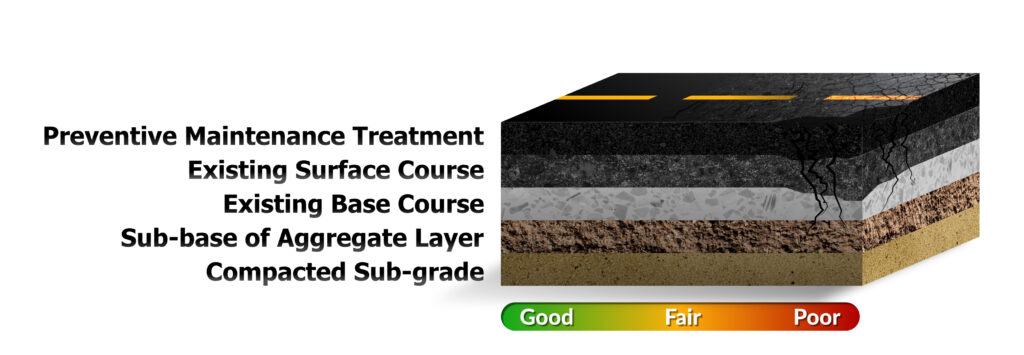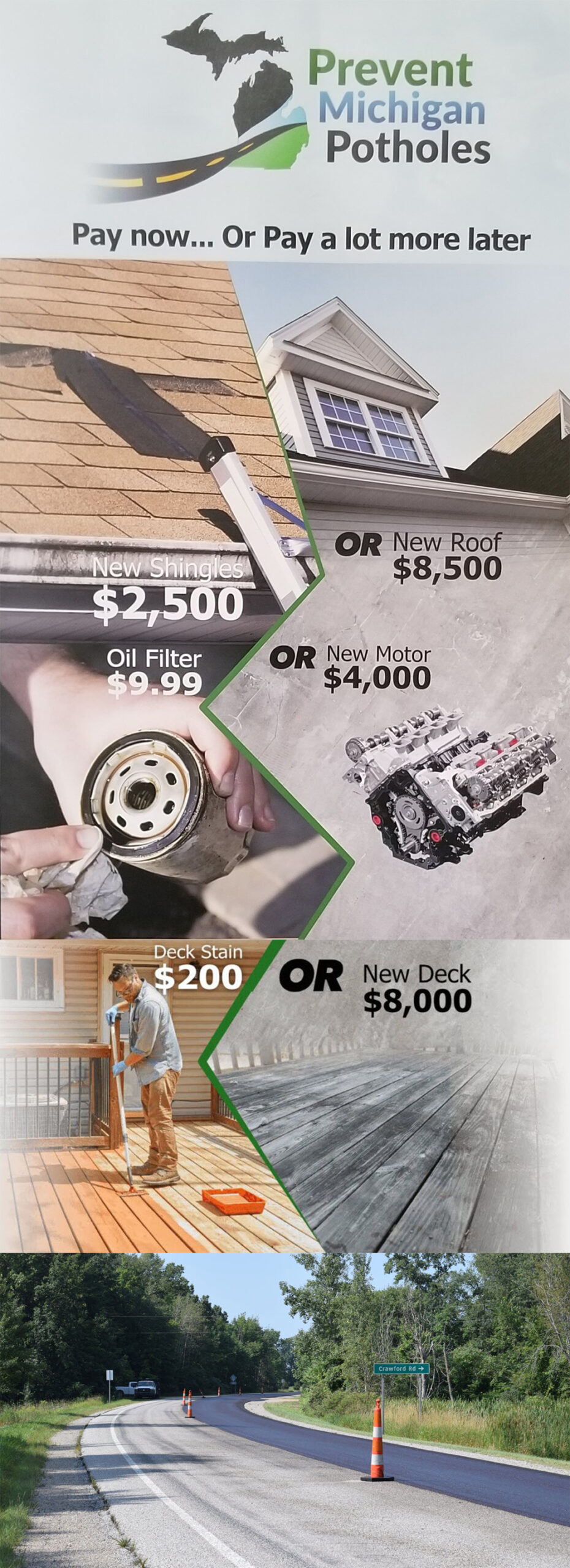What is Pavement Preservation and Why is it Important?
Michigan is a national leader in pavement preservation – the practice of strategically using preventive maintenance treatments to extend the life of the pavement.
Every $1 spent to keep a road in good condition saves $6 to $14 as the road condition deteriorates and becomes more costly to repair.
Keeping a road in good condition saves taxpayer dollars!
Keeping “good” roads in good condition also improves traffic safety and reduces auto repair costs that frustrate Michigan motorists.

The goal of pavement preservation is to place the right fix, on the right road, at the right time, every time!
To do that with the limited dollars available to Michigan road agencies takes a long-term planning approach, dedication and the funding to be able to make the best choices for every road, at the right time. It also requires a commitment to educating the public.
The public often questions why a road agency would fix roads in good condition instead of roads in much worse condition, or why “repairs” are being made to a road that was recently paved. The public can mistake preventive maintenance treatments for a new road; not understanding that cracks in the existing surface course will eventually reflect through the new surface.
Road agencies also face complaints from motorists assuming contractors didn’t build the road right, substandard materials were used, or the ever-popular notion they’re just wasting money.
A good public education campaign helps motorists understand that preventive maintenance treatments are as essential to the pavement as oil changes are for the engine in your family vehicle.
Average Life Span of a Paved Road
The old “worst first” strategy = 20 Years
Using preventive maintenance = 40+ Years
Pavement preservation protects both roads and budgets!
Pavement preservation is the key to keeping good roads good
… to Preventing Michigan Potholes!





